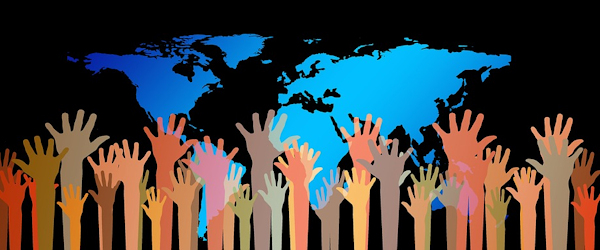 Why have we been working harder and harder despite being richer than ever? Why are millions of people still living in poverty when we are more than rich enough to put an end to it once and for all? These are questions the Dutch historian Rutger Bregman asks in his eye-opening book Utopia for Realists.
Why have we been working harder and harder despite being richer than ever? Why are millions of people still living in poverty when we are more than rich enough to put an end to it once and for all? These are questions the Dutch historian Rutger Bregman asks in his eye-opening book Utopia for Realists.
In other words, if we could reach a state of Utopia (one where everybody is rich, safe, and healthy), why haven’t we achieved it? For Bregman, one of the main things has to do with politics being stuck in a type of redundancy where immediate problem management hasn’t allowed room to engage the public with radical ideas to solve long-term goals.
Bregman mentions capitalism did in fact open the gates to create wealth and abundance, but it wasn’t enough. Progress is more than just amassing wealth, but it’s about having the wisdom to understand how to live well, and how we achieve a utopic scenario where everyone does well.
Radical ideas are needed, and very soon, as accelerating technologies, advanced automation, aggressively competitive online retailers, and Artificial Intelligence systems continue to disrupt many industries all over the world threatening millions of jobs into the future.
The author proposes three main ideas to reach Utopia: an unconditional basic income, a shorter workweek, and open borders. These ideas may sound radical (because they are) but make a lot of sense economically and meaningfully.
Universal Basic Income
There have been many studies in different parts of the world where a guaranteed unconditional basic income constantly shows very promising outcomes, resulting in reductions in crime, child mortality, malnutrition, domestic violence, teenage pregnancy, and showing improved school performance, economic growth, and gender equality. Children are the big winners, suffering less from hunger and diseases, and reducing the threats of becoming victims of child labor.
Not only were the outcomes very positive, but the studies also showed that negative perceptions many have on universal basic income are not true. Arguments like “giving people free money will make them lazy” or “they will spend the money on alcohol and tobacco” turned out to be false. The results showed exactly the opposite: a decline in consumption of alcohol and tobacco, and having an extra cash enabled people to work harder. As Bregman states, poverty is fundamentally about a lack of money, not about stupidity.
A very revealing part of the book on this subject is when Bregman shares how the United States was so close to pass a modest basic income in 1970 through President Nixon’s Family Assistance Plan. The House of Representatives approved the bill by an overwhelming majority, but it failed in the Senate opposed by Democrats. Since then, there hasn’t been a similar proposal, but today the topic has been covered more frequently, with even a Democratic candidate for president, Andrew Yang, proposing universal basic income as his main policy.
A Fifteen-Hour Workweek
For the past decades, technology and automation have helped us produce things way faster than ever. Things that would have taken days or weeks to make are now being done at a smaller fraction of time. However, it seems this hasn’t reduced our working hours, or, to put it in a different way, it hasn’t freed more of our time for leisure activities.
Pioneers of this idea in the early 20th century, Henry Ford and the cornflake magnate W.K. Kellogg, decided to experiment with reducing their employees’ working hours. Soon enough, they realized their workers were not only more productive at work, but happier to have real leisure time to spend with family and doing hobbies.
But as Bregman expands, a shorter workweek has benefits that go far beyond the individual level. It can help solve unemployment through work sharing (including the aging population), it can help reduce stress (people that work fewer hours are more satisfied with their lives), it can help reduce the effects of human-made climate change (shorter workweek cuts CO2 emissions), and among other things, it promotes gender equality (as house chores are better divided).
You may be wondering how do we start working fewer hours? Well, this is certainly not going to happen overnight, but we need collective efforts from policy makers, companies, and persuade the public to shift paradigms and break away from traditional ways of thinking.
Open Borders
In a world of globalization, we feel more connected to other countries and cultures. We can find imported goods from all over the world at stores, we can interact online with pretty much every country, we watch foreign films and listen to world music. Everything seems to move around internationally… except people. According to the author, only 3% of the world’s population lives outside their country of birth.
How beneficial would it be living in a world with open borders? A study conducted by Michael Clemens from the Center for Global Development shows an estimated global GDP growth ranging from 67% to 147% deriving from global labor market migration. According to Bregman, opening borders to labor would increase wealth by sixty-five trillion dollars, making this also the most effective measure to solve world poverty.
Today, a newborn baby’s future chances of succeeding in life depend greatly on which country they are born, not on their own merit or contributions. And that’s partly because borders discriminate and continue furthering the inequality gap. Scientists at the World Bank report that if all developed countries would let just 3% more immigrants, the world’s poor would perceive an extra $305 billion. And even though today open borders would seem a long shot to achieve (especially with far-right country leaders), we must support politicians who understand that a gradual implementation of labor migration flow can help advance progress and fight poverty.
In conclusion, I think Rutger Bregman has written a very important book that has made a lot of people think about these remarkable ideas which, if implemented, could help make the world a better place. But as he quotes John Maynard Keyes, “The difficulty lies, not in the new ideas, but in escaping from the old ones.”
 Sinclair Lewis’ dystopian political novel
Sinclair Lewis’ dystopian political novel  The latest issue of The New Yorker (May 8, 2017) shares “
The latest issue of The New Yorker (May 8, 2017) shares “ It’s happening. The guy at the very top position of power is threatening the foundations of liberal democracy in our country by paving the way for plutocracy and religion to perpetrate in the functions of the government.
It’s happening. The guy at the very top position of power is threatening the foundations of liberal democracy in our country by paving the way for plutocracy and religion to perpetrate in the functions of the government.